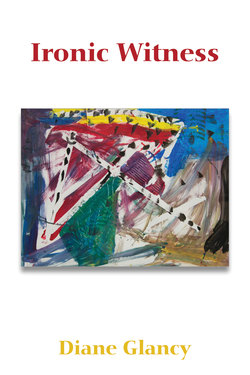Читать книгу Ironic Witness - Diane Glancy - Страница 9
На сайте Литреса книга снята с продажи.
My Work
ОглавлениеMy work shed was open to the public—my clay figures for sale. But a car rarely came. I left a billet in the bed-and-breakfast in Fenton. Sometimes several women who had come to a little inn in town for lunch would venture up the road. I think they were puzzled by my work, and they would politely found a way to leave.
I was a maker of clay, I reminded myself. No, the clay was made. I was a maker of clay figures. A maker in clay. I worked for years before I had a showing. But Daniel, in the Old Testament, in exile all his life, still made his prophecies. I felt my clay figures were prophecies. Sometimes I felt my audience was God, despite the self-imposed distance I felt from him.
Actually, I’m afraid of prophecy. It’s a risk. Even more than working with clay. No one paid attention anyway, Frank said. No one understood the underworkings, or the meaning of my ziggurats. That’s another reason working with clay is a kind of prophecy. I could send all kinds of indirect and hidden messages. No one would pay attention. I remembered Frank’s words.
Some days, I worked on formation. Some days, I only wrote about the formation. I’m sure God likes art. He’s the author of it. I recognize what he can do when I see the evening clouds he shapes into ziggurats.
I’ve always suspected heaven is something of an art gallery. A living gallery. A living galaxy in which everything breathes and has voice and moves at will. How would I explain hell when I found it? Little pieces of information fell now and then, even before I was there. It mainly had to do with the darkness of my own despair and the death of our son, Daniel. But I could push it away with a new ziggurat called Lightings.
“I guess you think they pay attention to your translations,” I said.
You would think the anguish would dissipate and the sorrow lessen. But I continued to wound. I like to go back and remember the land, because it is the origin of clay. In those moments, I was not tormented. I liked the winter landscape. The earth was not as covered as it was in summer.
Though I was in my blue period, it was all the browns that held me. The leafless trees. The russet edges of the fields. The dried grasses. Even the sky seemed brown along the horizon with a storm that passed in the north. I think that’s what I’ll miss about the earth when I’m no longer here. I’ll sit under the upper edge of hell, with my little blowhole that lets in cool air, and think about the loveliness I knew on earth.
Hell is the absence of God. The separation from God. I had heard that from Frank all our married life. If I stayed separate from him in this life, he would stay separate from me in the hereafter. It was my choice.
Maybe the browns were calling me out of the blue period several years after Daniel’s death. Wasn’t it time I moved on?
I liked abandoned farmhouses with their gray weathered clapboards open to the air, windows gone, the wide sky invading the boards of the roof. In a few years, the old roof would collapse into the house.
There also was a sign reading “Jesus is Lord” on the side of a shed. I remember thinking, What did that mean? I had come from a non-religious family. Maybe that was my rebellion. I would become a follower of this puzzling man, all wingspread and wrapped in conflict, with a crown of barbed wire like you see sometimes draped over a fencepost.
The cemetery pines were the only green leftover from summer—the only reminder the land would not always be brown.
I liked the hay rolls. The windbreaks between fields. A hawk in a bare tree. Even the vapor trails crisscrossing the sky.
In the end, I wasn’t much of a rebel. I was a crone, a hawk on a leafless tree, barely holding on against the wind. The blue mood stayed with me as a bird. No—a bat. It rested in my hair. Its wings up-tipped in the wind.
—
The country I knew as a child visiting my grandfather’s farm had diminished. It was invisible, actually. I could tell my children what it was like in my memory, as I did when the lights went out in a storm, but they could not really understand. Sometimes they seemed bored as I talked, only listening out of politeness. They could know it happened—that I was a child on a farm in a different world than the one they knew, but they could not know it. I could say it was all a matter of perception, or experience, actually—or perception that comes through experience. Otherwise, it is someone else’s tale.
Do you know there were times we ran in the fields and played in the potato cellar and climbed on the tin roof of the pig shed? There was the barn. The pond in the field. Grandfather Nyland walking behind his horse in the distance. The farmhouse, with its kerosene lamp in the darkness as soon as the sun went down. No news from anywhere. Nothing from nowhere. All was isolation on a farm. The whole world. The heat. The cold. The water pump at the kitchen sink. The pantry. The black hole of the attic. All of it gone.
They did not understand the absence of electricity. It was there, they said. It had always existed. Yes, but we didn’t know how to connect with it. Or my grandparents didn’t. We had it at our parent’s house in town, but wires had not reached the farm. How could I expect them to understand?
